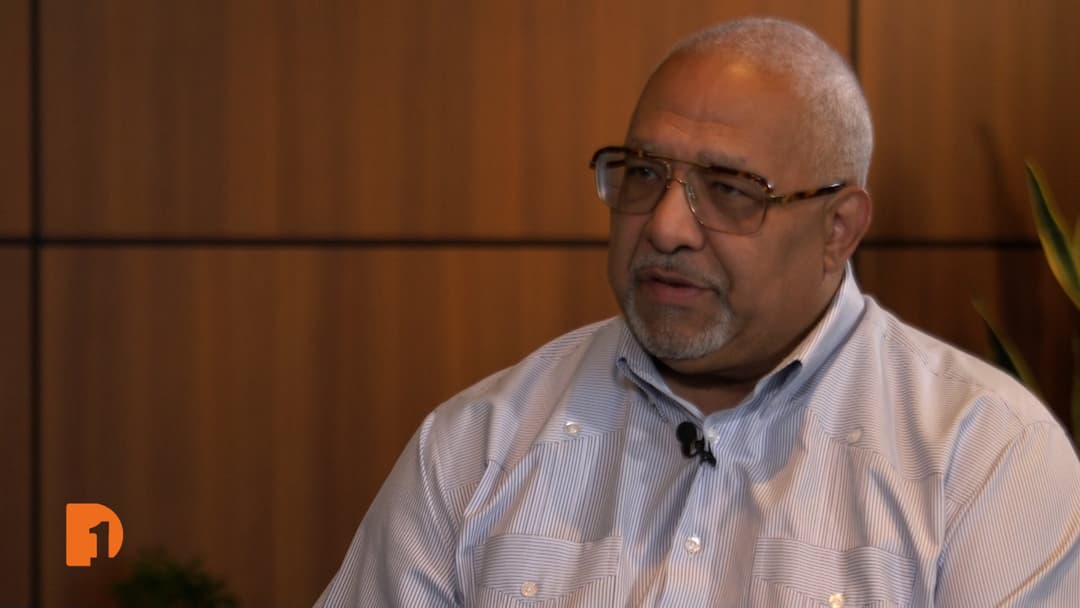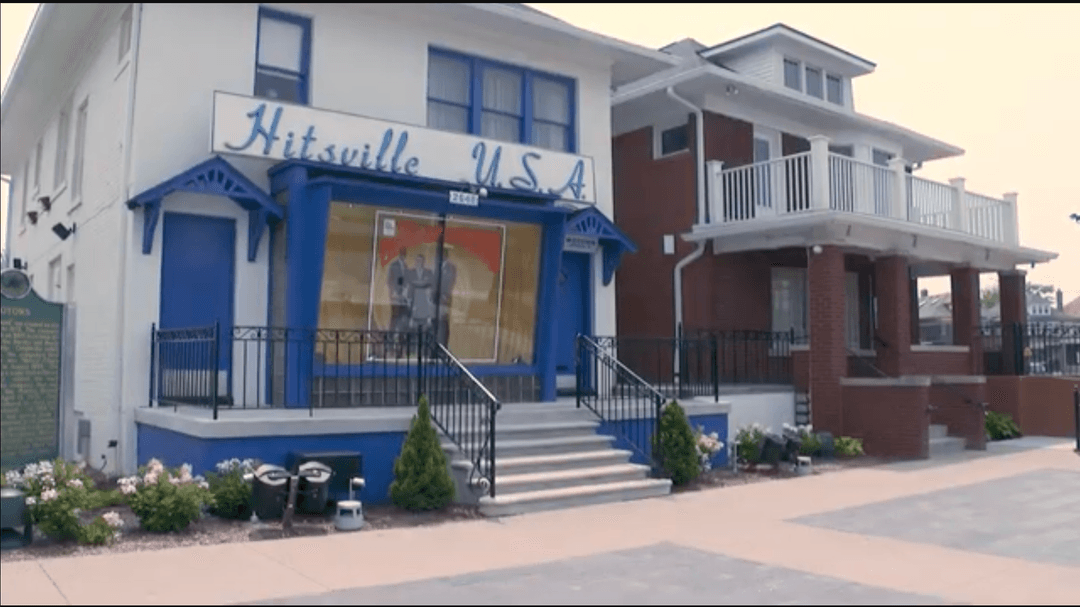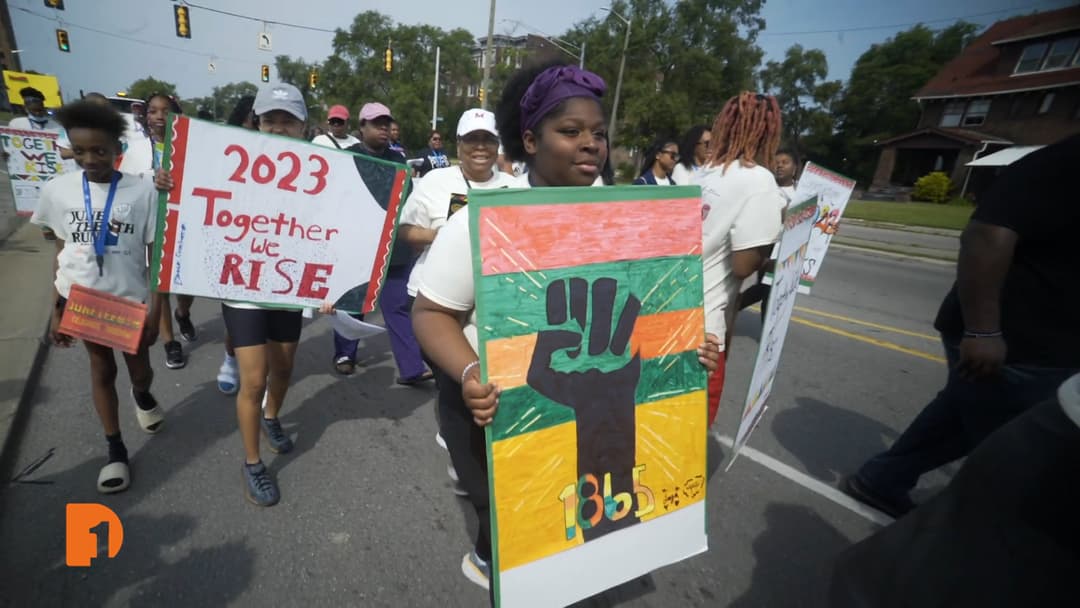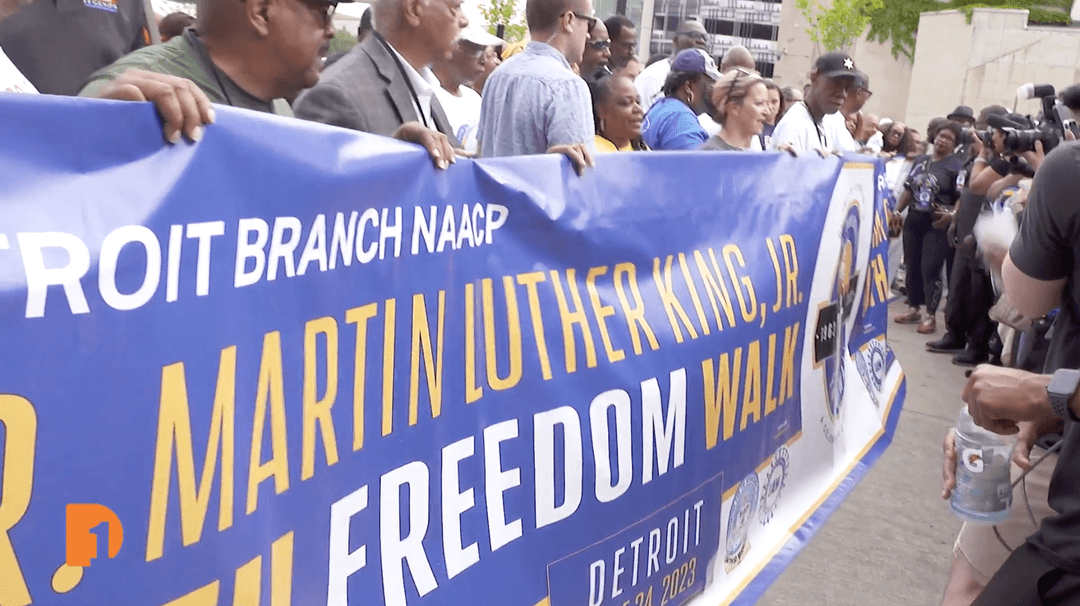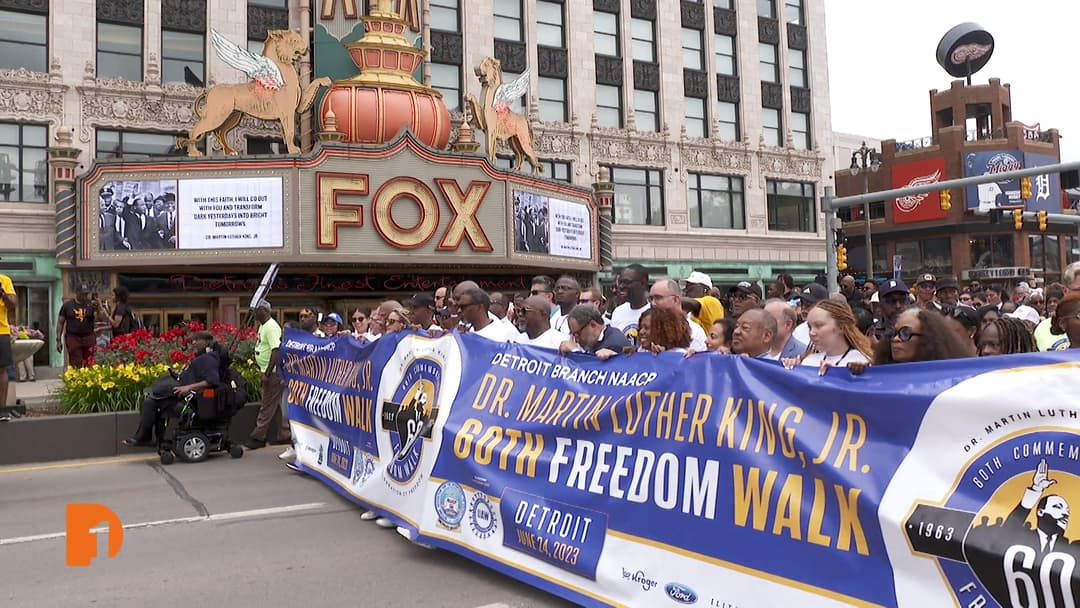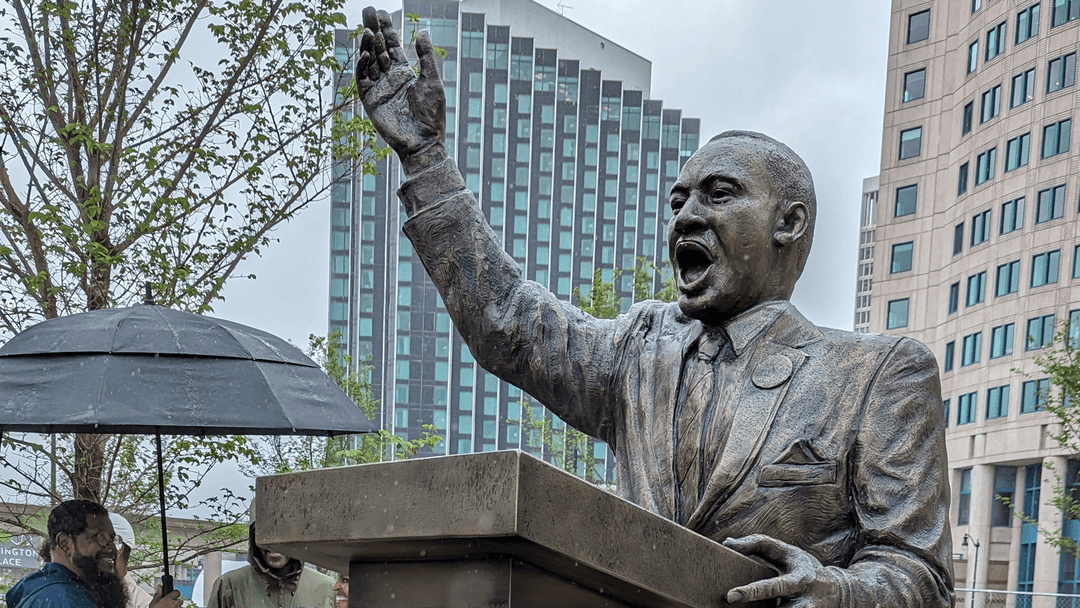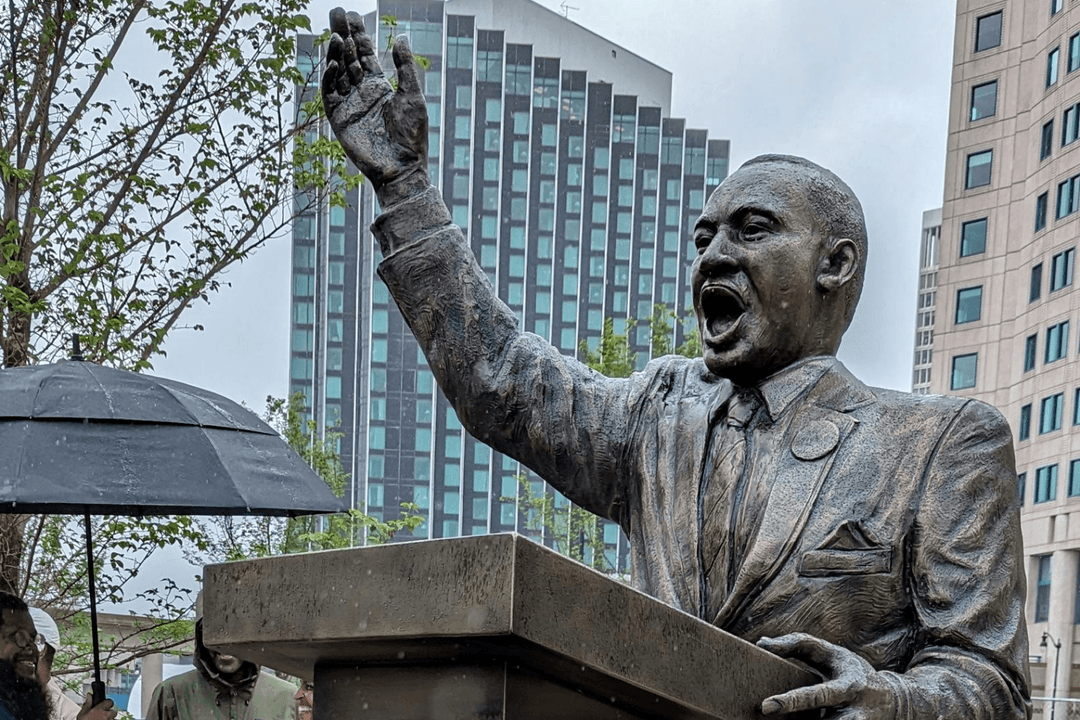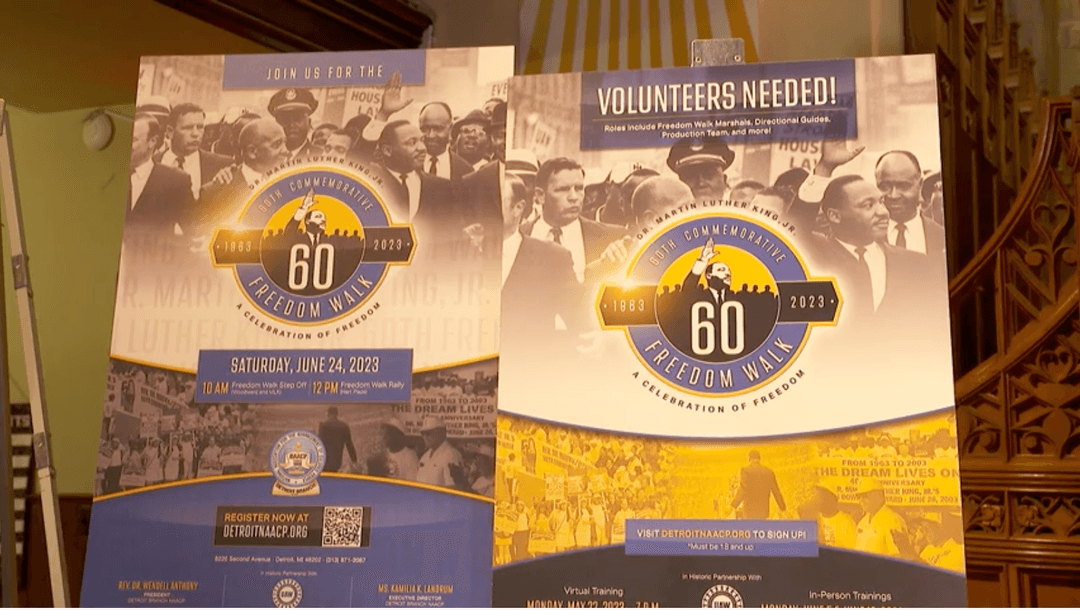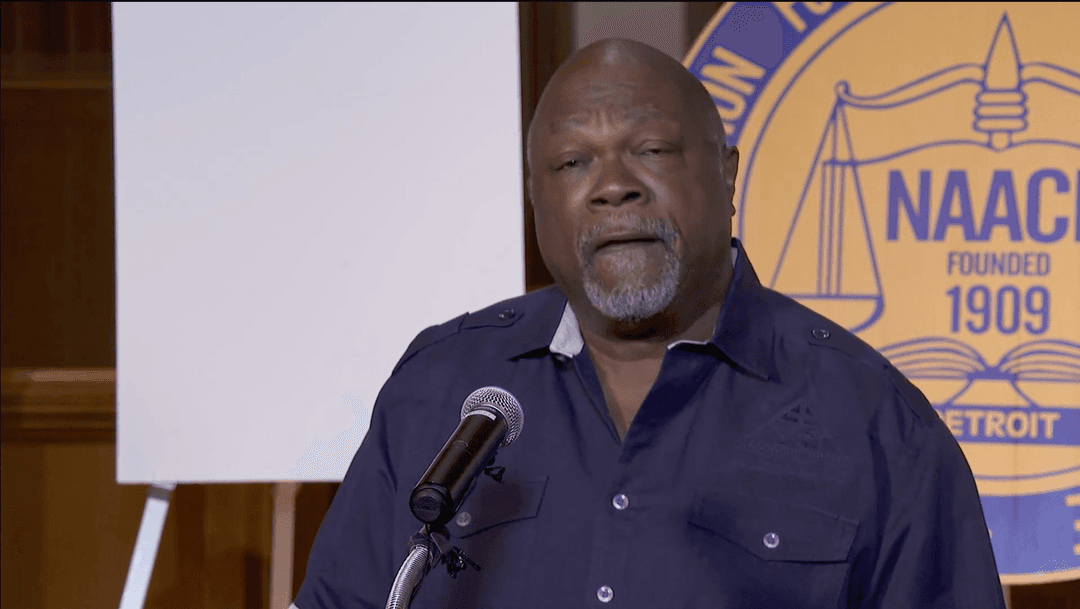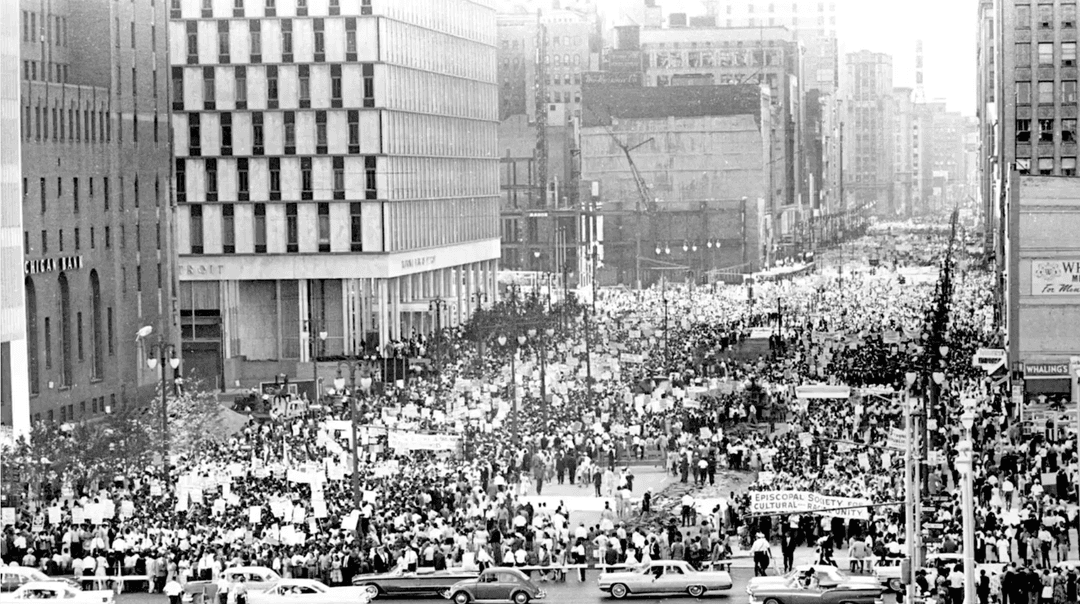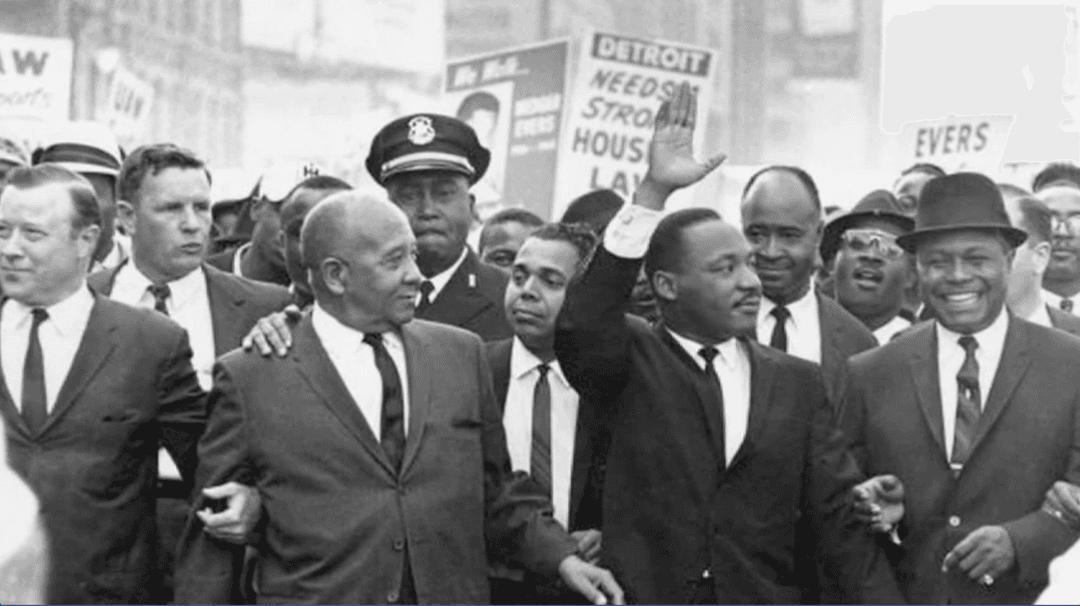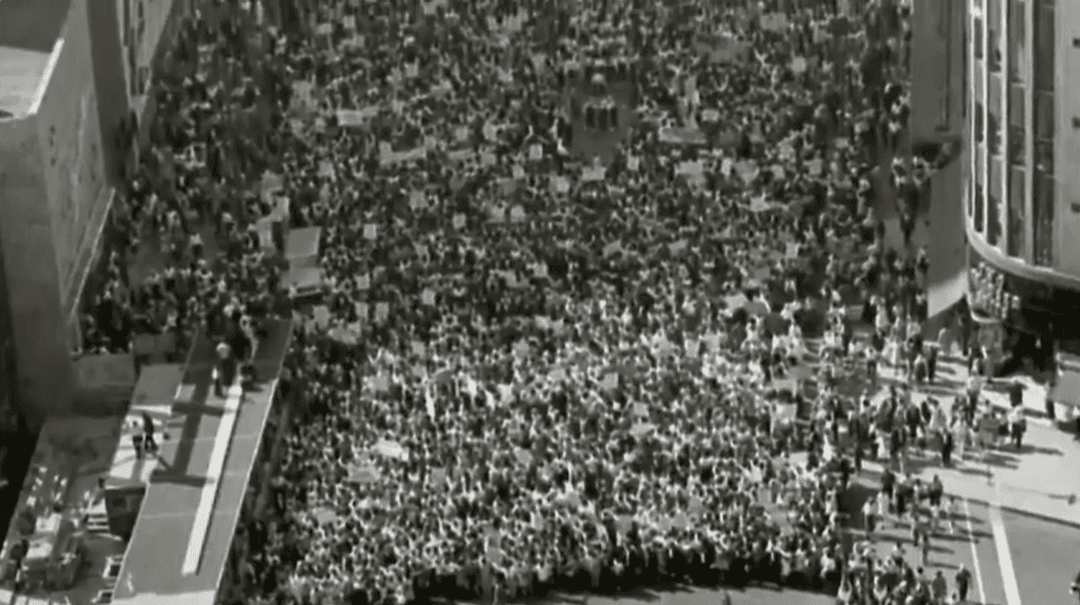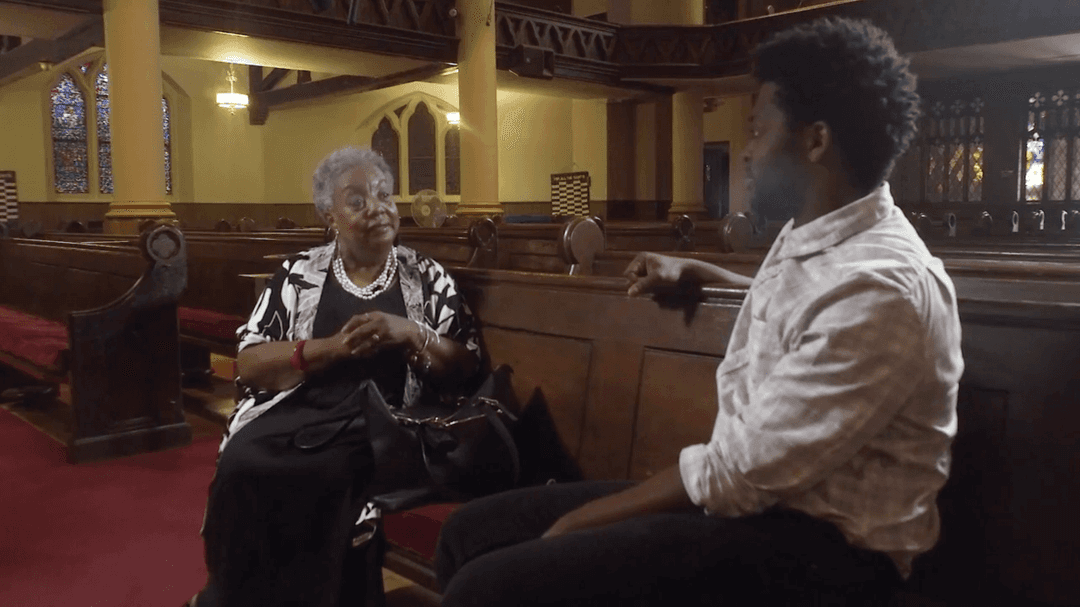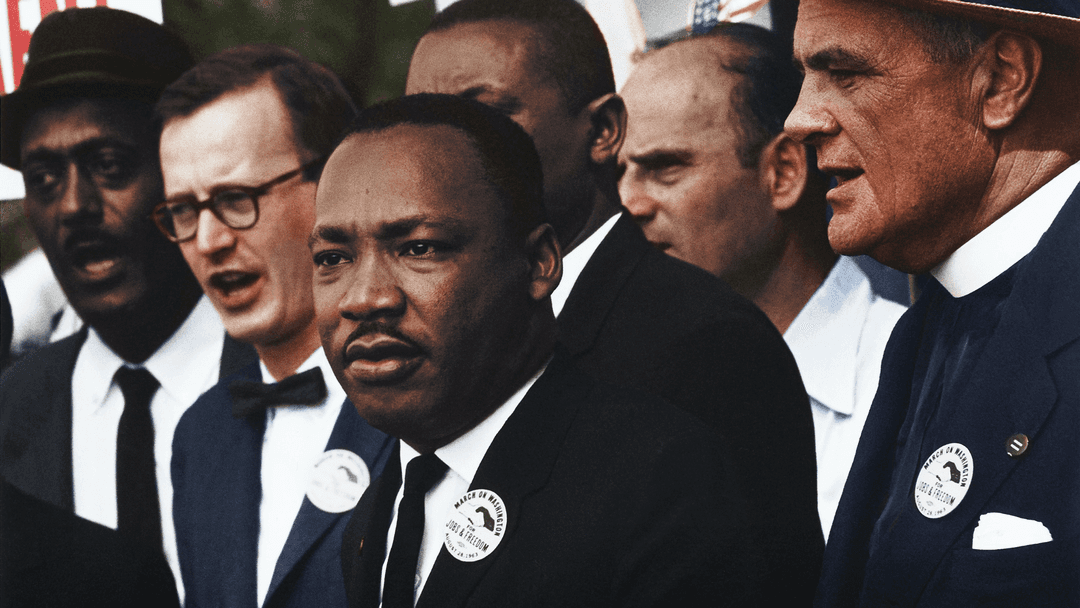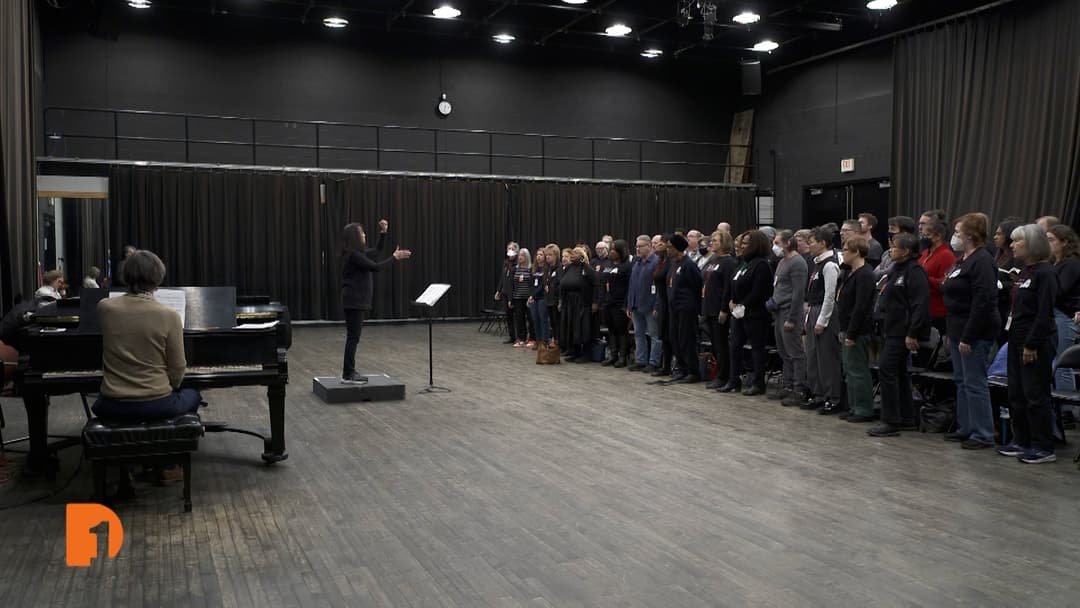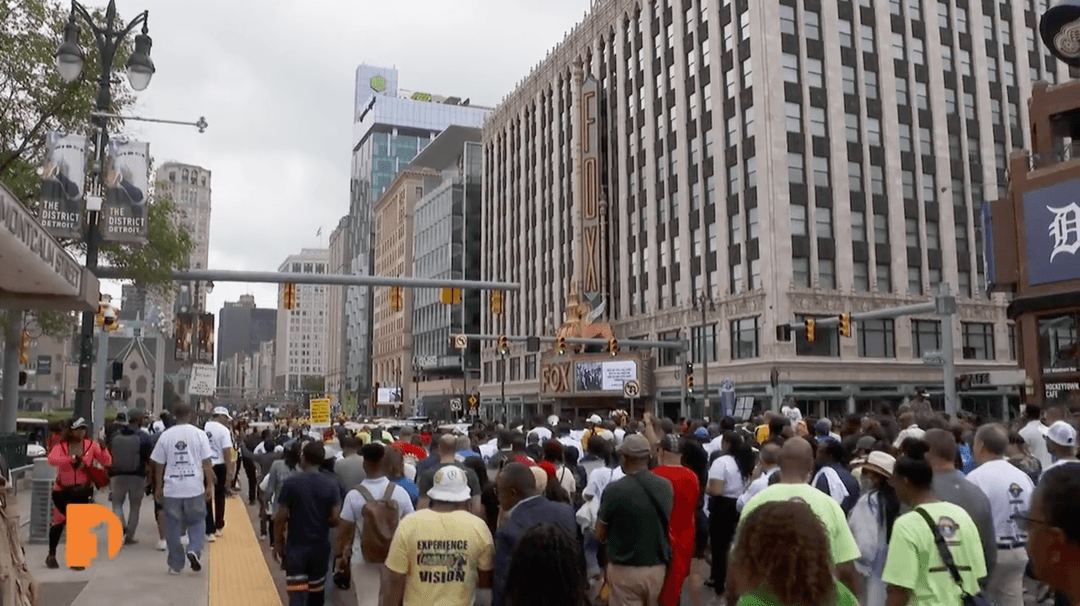Detroit NAACP unveils life-size bronze statue of Dr. Martin Luther King Jr. in Hart Plaza
Jun 23, 2023
Detroit is getting its very own Martin Luther King Jr. statue. As part of the Detroit Branch NAACP’s June Jubilee: A Celebration of Freedom events commemorating the 60th anniversary of the Detroit Walk to Freedom, the organization unveiled a bronze sculpture of Dr. King in Hart Plaza Friday, June 23
The sculpture was created by Utah-based artist Stan Watts and donated to the city after Watts learned more about Dr. King’s connection to Detroit through the historic Walk to Freedom 60 years ago. There, Dr. King gave an early version of his famed “I Have A Dream” speech to more than 25,000 people inside Cobo Hall before reciting the famous speech standing atop the Lincoln Memorial at the March on Washington two months later.
RELATED:
- Detroit NAACP President Rev. Wendell Anthony previews June Jubilee: A Celebration of Freedom events
- Walking down memory lane: Two Detroit women reflect on attending the 1963 Walk to Freedom
- From attendee to activist: Rev. Dr. JoAnn Watson’s life changed after the 1963 Detroit Walk to Freedom
- Detroit NAACP celebrates 60th anniversary of Walk to Freedom with MLK statue
The City of Detroit’s Arts and Culture Director Rochelle Riley was key to securing the sculpture for the unveiling this week as part of the Detroit Branch NAACP commemorative June Jubilee: A Celebration of Freedom through June 25

Ahead of the unveiling, One Detroit contributor Orlando Bailey, engagement director for BridgeDetroit, talked with Watts and Riley about the statue unveiling, how art can be used as a way to reflect history, the historical importance of Dr. King’s “I Have a Dream” speech in Detroit, and how the statue will serve as a centerpiece for the community.
Full Transcript:
Orlando Baily, Engagement Director, BridgeDetroit: Tell us this story because this is rather fascinating. So you were at the event at the Wright and you had begun to think about and done some investigation about Dr. Martin Luther King’s history here in the city of Detroit.
Stan Watts, Artist and Sculptor: So I was invited to this unveiling at the Wright Museum, and that was my first time being there. And while there, I said, did Martin Luther King ever do anything in the city? The mayor was there and Rochelle Riley and the curator of the museum. And they said, as a matter of fact, don’t you know he gave the speech here first? No, I didn’t know that. So I approached the mayor, and I said I would like to place a Dr. King here and I believe I can get a donor if we can find a place.
Orlando Baily: Rochelle Riley, the City of Detroit’s arts and culture director, has worked closely with Watts throughout the process.
Rochelle Riley, Director of Arts and Culture, City of Detroit; He said, you know, I’ve got some other statues. And I said, Oh, really? You’ve got a lot of statues? What have you got? And he said I’ve got this Martin Luther King statue and the person who owns it wants to donate it to someplace very special, donate it to a city, or to some spot.
I said we want it. We want it. And he said, oh, well- yeah, we could do it. And I said, No, no, no. There’s a very special reason we would want it. Dr. King gave his “I Have a Dream” speech here two months before he gave it in Washington, D.C., and that historic moment that was seen by everybody. But we had 125,000 people who marched down Woodward and saw it here and heard it here.
Orlando Baily: Talk a little bit about art being a documentary and a record of his being here.
Stan Watts: You only have so many statues. Dr. King was one of those that I had the honor of doing. Great men and great stories and they’re untold from the black community because there’s still- they survived through horrific situations to now. And our job is to bring the horrific situations to light and honor the people that documented, that learned to read when you couldn’t teach them to read because it’s illegal.
Rochelle Riley: Stan Watts is an amazing artist. We had the best conversations about African American history, which is a part of American history. We had great talks about his aesthetic and what he likes to do, and he likes to do a lot of statues of African Americans who deserve their place in history. When you see the statue, you’ll see that not only does he know what he’s doing, but he really puts his heart into it. These things mean something to him.
Stan Watts: I’m going to say something that I believe in my heart. The longest-lasting form of medication for healing is bronze because it lasts for 4000 years. So when you honor somebody doing something good that did something that changed lives, you can actually be a better person for having seen great artwork. We need great artwork done with respect.
Orlando Baily: Normally, artists are sort of commissioned in this kind of work. You were not. You went out and found the funding to be able to do this. I want to ask you about- upon learning this history, what moved on the inside of you that prompted you to want to do this without being commissioned, but to ask to do this?
Stan Watts: Great artists need to understand why they’re doing what they’re doing and what they’re doing. They’re not doing it for money. I’m not doing it for money. I need to get paid, but I’m doing it because it needs to be done.
Orlando Baily: The statue of MLK will find its new home in the heart of downtown Detroit at Hart Plaza.
Rochelle Riley: As soon as we decided and as soon as they agreed to let us have it here, there was no place else for it to be. Hart Plaza is our community space in Detroit. It’s like New York’s Times Square. It is where, connected to the nation’s best riverwalk, the place for things to happen. We have Movement there. We have the jazz festival there.
Everything big for our entire community happens there. The placement of the statue is so important. There is a transcending monument that’s at Hart Plaza that people don’t always pay attention to that represents labor. No matter who’s walking down that plaza, they’ll be able to walk right up to that statue, right on that plaza, at Hart Plaza, our community space.
Orlando Baily: What are you most looking forward to when you make your way here to the city?
Stan Watts: It’s the unveiling and the humble opportunity to honor somebody of the magnitude of Dr. King and his purpose is for just bringing the Constitution to fruition. He had a mission to take. Don’t just say that. Don’t just change the laws. Enforce them. He was a great man. He knew the spirit, I believe, of our country. Once everything was exposed on television- That the spirit wouldn’t allow- Our country couldn’t allow ourselves to say something and then not back it. And I think we were given a check that balanced is how he described it.
Orlando Baily: Yeah, he describes that in the beginning stanzas of his famous “I Have a Dream” speech with the March on Washington. He said, “The check has been returned as insufficient funds.”
Stan Watts: Very exact. I’m looking forward, humbly, to be in this event and to know that my talents were used for a good purpose. And the people will be able to— 500 years later, they’ll still know that this wonderful man had a dream, and we all are just from the same family.
Stay Connected:
Subscribe to One Detroit’s YouTube Channel & Don’t miss One Detroit Mondays and Thursdays at 7:30 p.m. on Detroit PBS, WTVS-Channel 56.
Catch the daily conversations on our website, Facebook, Twitter @DPTVOneDetroit, and Instagram @One.Detroit
View Past Episodes >
Watch One Detroit every Monday and Thursday at 7:30 p.m. ET on Detroit Public TV on Detroit Public TV, WTVS-Channel 56.
Stay Connected
Subscribe to One Detroit’s YouTube Channel and don’t miss One Detroit on Thursdays at 7:30 p.m. and Sundays at 9 a.m. on Detroit PBS, WTVS-Channel 56.
Catch the daily conversations on our website, Facebook, Twitter @OneDetroit_PBS, and Instagram @One.Detroit
Related Posts
Leave a Reply
Your email address will not be published. Required fields are marked*



